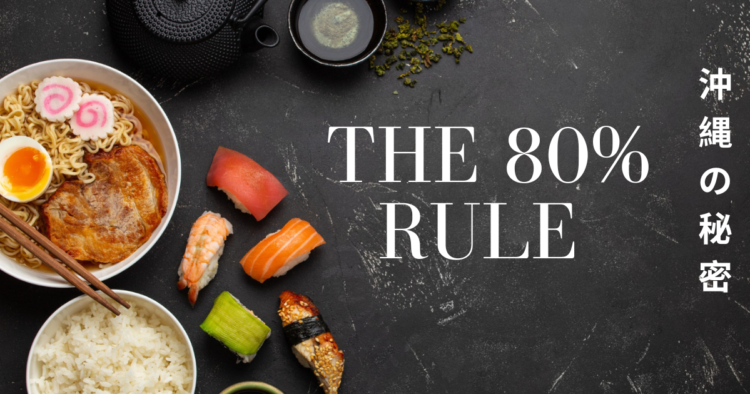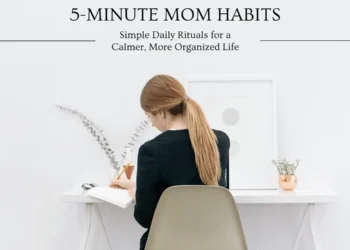Table of Contents
1 Introduction
We live in a world of abundance—overflowing grocery shelves, never-ending fast food ads, and a culture that equates full plates with love, success, and celebration. Yet, paradoxically, many of us are more tired, bloated, and disconnected from our bodies than ever before.
The problem isn’t just what we’re eating. It’s how much—and more importantly, why.
We eat out of habit, out of stress, out of boredom. We eat because the clock says it’s lunchtime, not because our stomach truly needs fuel. And all too often, we don’t stop until we’re uncomfortably full—lethargic, heavy, and foggy.
But what if there was a simpler, gentler way?
In Okinawa, Japan—home to some of the longest-living people on Earth—there’s a quiet principle woven into daily life: Hara Hachi Bu, which means “Eat until you’re 80% full.” It’s not a diet. It’s not a trend. It’s a conscious pause. A mindful moment that invites you to stop just before you cross the line from satisfied to stuffed.
This small shift carries immense power.
It can help you manage weight without punishment, reduce your risk of chronic disease, and reconnect you with your body’s natural wisdom. More than that, it reminds us that enough is truly enough—and that in simplicity, there is strength.
In this article, we’ll explore 7 powerful, science-backed benefits of practicing Hara Hachi Bu. Whether you’re struggling with overeating, looking for a sustainable way to improve your health, or just curious about ancient wellness practices that still matter today—this might be the habit that changes everything.
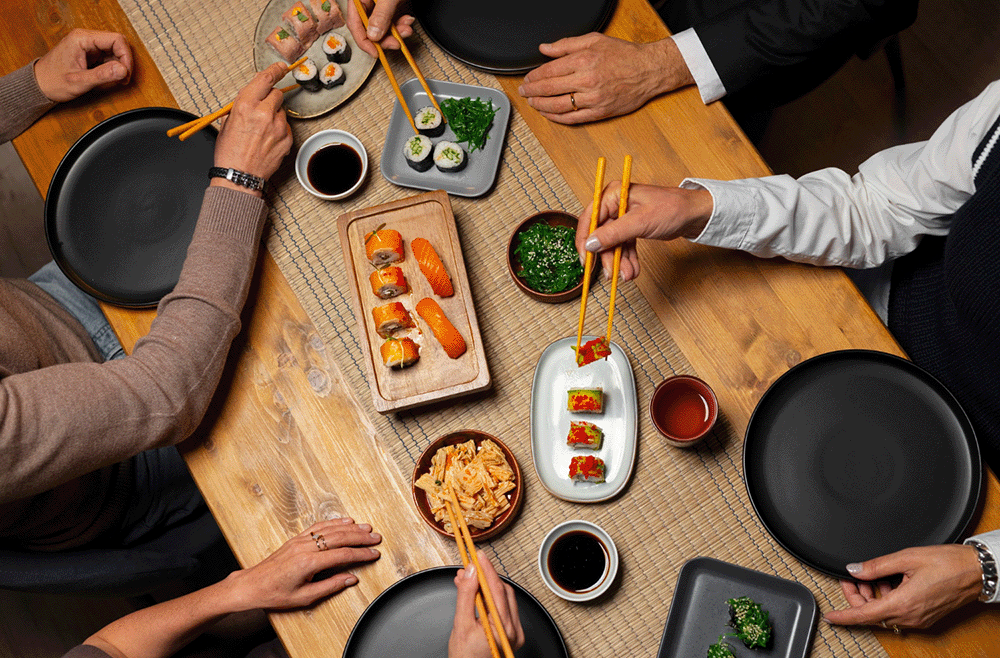
2 How Hara Hachi Bu Supports Natural Weight Management
One of the most immediate and noticeable benefits of Hara Hachi Bu is its natural impact on weight management. In a society overwhelmed by fad diets, strict calorie restrictions, and intense workout regimes, this ancient practice offers a refreshing alternative: eat less, but with intention.
When you stop eating at 80% fullness, you avoid tipping into the zone of excess calories—the zone that, over time, contributes to gradual weight gain. By simply eating a little less at each meal, you reduce overall calorie intake without the feeling of deprivation that most diets bring.
What makes this approach powerful is its sustainability. Hara Hachi Bu doesn’t require counting grams of carbs or obsessing over macros. It teaches you to tune into your body’s internal cues. Over time, this awareness reshapes your relationship with food. You begin to recognize the difference between true hunger and emotional eating. You learn how to stop, not because the plate is empty, but because your body says “that’s enough.”
In Okinawa, where this habit is culturally ingrained, obesity rates are among the lowest in the world. The elderly population remains active and mobile well into their 80s and 90s—not because of intense workouts or modern health apps, but because of a lifetime of mindful, moderate eating.
In a world constantly chasing weight loss shortcuts, Hara Hachi Bu offers a timeless, proven, and gentle strategy: trust your body, eat with intention, and let fullness come naturally—not from the food on your plate, but from the balance in your life.
3 Hara Hachi Bu and Digestive Comfort: Eat with Ease
Have you ever finished a meal only to feel bloated, sluggish, or like you need to unbutton your jeans? That uncomfortable fullness isn’t just unpleasant—it’s your body signaling distress. Digestion is a complex, energy-intensive process, and when overloaded, your system struggles to keep up.
Hara Hachi Bu brings relief.
By eating until you’re 80% full, you’re giving your stomach the space and time it needs to work efficiently. Food is digested more smoothly, nutrients are absorbed more effectively, and your gut isn’t forced into overdrive. Instead of your body diverting all its energy to break down a heavy load, it can distribute resources to other vital processes—like healing, mental focus, and movement.
The result? You feel lighter, more alert, and more in control of your energy throughout the day.
In the West, many of us have come to associate fullness with satisfaction. But in truth, there’s a big difference between feeling satisfied and being stuffed. Fullness can be physical discomfort; satisfaction is the quiet hum of enough. Hara Hachi Bu helps you find that sweet spot—where your body is nourished but not burdened.
Even more, reducing digestive strain contributes to long-term gut health. It helps prevent acid reflux, reduces the risk of constipation, and supports a healthier microbiome—your body’s internal ecosystem of beneficial bacteria.
So the next time you reach for just one more bite, pause. Ask yourself: Am I still hungry, or just finishing what’s on the plate? That mindful pause may be the key to turning every meal into a moment of ease instead of discomfort.
4 Hara Hachi Bu and Longevity: The Secret Behind Okinawan Health
In Okinawa, Japan, centenarians aren’t rare—they’re a norm. The island is home to one of the highest concentrations of people living beyond 100 years, and researchers have long sought to understand why. While genetics play a role, one standout factor consistently emerges: Hara Hachi Bu.
Eating until you’re 80% full isn’t just about managing meals—it’s a daily practice that slows down the biological clock.
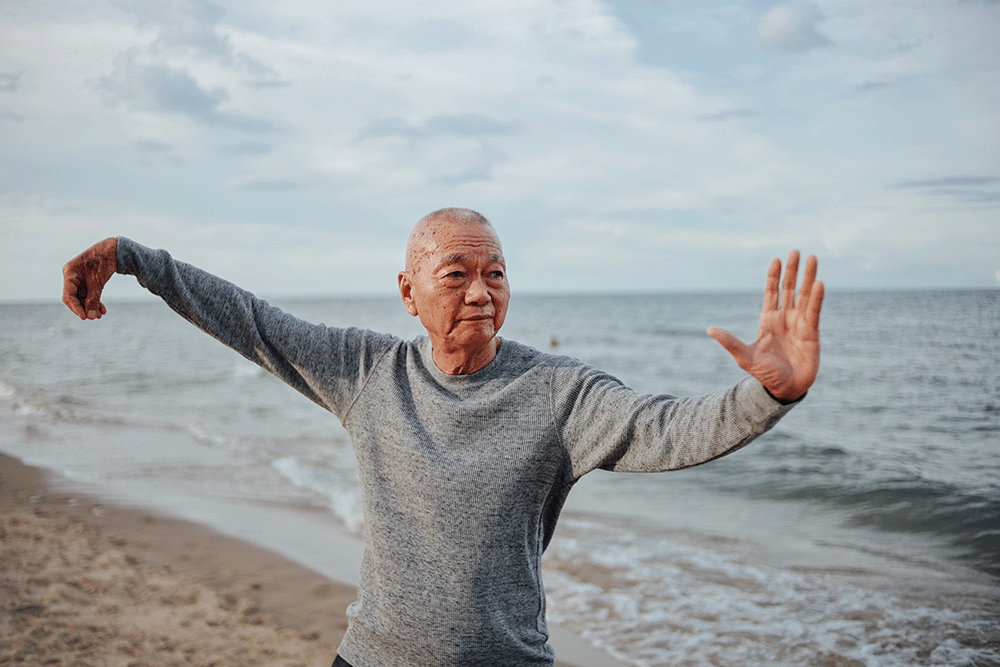
Scientific studies show that moderate calorie intake activates pathways in the body associated with cellular repair, reduced oxidative stress, and improved metabolic function. In simpler terms, it helps your body stay younger, longer. When the body isn’t burdened by constant overeating, it spends less time fighting inflammation and more time maintaining vital systems—like your heart, brain, and immune response.
Hara Hachi Bu is a form of calorie restriction without starvation. It taps into the same biological mechanisms that researchers have linked to extended lifespan in animals and humans alike. But instead of rigid protocols, it’s guided by instinct, culture, and habit.
It’s no coincidence that Okinawan elders remain active well into their 90s, tending gardens, walking to market, and engaging with their communities. Their diet is clean and balanced—but it’s the restraint, the mindfulness, that seems to be the magic ingredient.
In a world obsessed with anti-aging solutions, expensive supplements, and extreme diets, Hara Hachi Bu offers something beautifully simple: live longer by living lighter. Not just in body, but in spirit.
5 Mindful Eating Reinvented: The Hara Hachi Bu Approach
In the rush of modern life, meals have become background noise. We eat in front of screens, in cars, between meetings—often without even tasting our food. This disconnection fosters mindless eating, leading us to consume more than we need and leaving us feeling emotionally and physically unsatisfied.
Hara Hachi Bu gently invites us back to presence.
By choosing to stop eating at 80% full, you’re making a conscious decision to pay attention. You’re not relying on external cues—like an empty plate or a set portion—but on your internal signals of hunger and satisfaction. This is the heart of mindful eating.
When you practice Hara Hachi Bu, every bite becomes an opportunity to listen to your body. You chew slower. You notice textures. You pause between bites. You become more aware of how different foods make you feel—not just in the moment, but hours later. Over time, this awareness rewires your relationship with food from reactive to intentional.
And it doesn’t end at the table. Mindful eating fosters mindfulness in other areas of life. You begin to recognize when you’re emotionally eating, when you’re full of stress rather than hunger, and when you simply need rest—not a snack.
Studies show that people who eat mindfully are less likely to overeat, have healthier digestion, and feel more in control of their dietary choices. But perhaps the greatest gift is this: meals become sacred again. A pause. A ritual. A chance to nourish more than just the body.
With Hara Hachi Bu, eating isn’t about restriction. It’s about reconnecting—with your body, your food, and the quiet wisdom between bites. Practicing mindful eating has been shown to reduce emotional eating, improve digestion, and strengthen the connection between body and mind. According to Harvard Health Publishing, mindful eating helps people slow down, notice satiety cues, and develop a healthier long-term relationship with food.

6 Preventing Chronic Disease Through Hara Hachi Bu
The modern diet—rich in refined sugars, oversized portions, and highly processed ingredients—has quietly fueled an epidemic of chronic illnesses. Heart disease, type 2 diabetes, obesity, and even some cancers often stem not from one dramatic event, but from years of small, daily excesses.
This is where Hara Hachi Bu shines as a preventive philosophy, not just a nutritional one.
Eating until you’re 80% full naturally limits calorie intake, which helps maintain a healthy weight—a key factor in reducing risk for many chronic conditions. But the impact goes deeper than just numbers on a scale. When you avoid overeating, you ease the strain on your cardiovascular system, keep blood sugar levels more stable, and reduce systemic inflammation—all of which contribute to long-term health.
Research consistently shows that even modest reductions in calorie intake can improve insulin sensitivity, lower blood pressure, and reduce LDL cholesterol. These aren’t small wins—they’re life-changing shifts that help prevent the cascade of diseases that often emerge in midlife and beyond.
In Okinawa, where Hara Hachi Bu is second nature, chronic diseases are remarkably rare. Centenarians there often live free of medication, walking, cooking, and enjoying life without the limitations so common elsewhere.
What’s powerful about this approach is that it doesn’t require a radical lifestyle overhaul. It’s not about cutting out entire food groups or following strict regimes. It’s about embracing restraint as strength, and moderation as medicine.
In a world searching for miracle cures, Hara Hachi Bu reminds us that sometimes the most powerful solution is the one that asks less of us—not more.
7 Hara Hachi Bu for Emotional Balance and Inner Peace
Food is more than fuel—it’s comfort, memory, and emotion wrapped into each bite. Yet for many, eating becomes a way to silence stress, fill emotional voids, or numb uncomfortable feelings. This cycle—eat, feel guilt, restrict, repeat—creates a fragile emotional relationship with food.
Hara Hachi Bu offers a quiet, powerful interruption.
By stopping at 80% full, you’re not just eating less—you’re learning to pause. You begin to ask: Am I actually hungry? Or am I looking for distraction, reward, or relief? This self-awareness opens a door to emotional balance that crash diets and food rules can never unlock.
Mindful moderation encourages you to meet emotions, not mask them. Over time, this builds a more compassionate connection with yourself—where food is neither punishment nor escape. It becomes nourishment, chosen intentionally and consumed with care.
There’s also an emotional calm that arises from feeling in control—not in a rigid, willpower-driven way, but through trust. You trust your body to know when enough is enough. You trust yourself to respond with awareness, not reactivity.
This inner shift has ripple effects. Emotional eating lessens. Food guilt fades. Mood swings related to overeating—like the crash after a heavy meal—begin to disappear. In their place comes a steady confidence that you’re no longer ruled by cravings or compulsions.
In the simplicity of eating “just enough,” you make space for emotional clarity. You eat when you’re hungry. You stop when you’re satisfied. You live with more ease, not just in your body—but in your mind.
8 Hara Hachi Bu and the Cultural Connection to Food
In many parts of the world, food is deeply sacred. It’s tied to seasons, traditions, family, and heritage. Yet in the modern rush, we often forget that meals are more than just fuel—they’re moments of meaning. Hara Hachi Bu brings us back to that truth.
The practice of stopping at 80% full is rooted in centuries of Okinawan wisdom, passed down through generations. It’s not just about eating less—it’s about eating with reverence. In Okinawan culture, meals are often enjoyed in quiet gratitude. Elders begin with the phrase “Hara Hachi Bu” as a gentle reminder of respect—for the body, for the food, and for the life it sustains.
When you adopt this mindset, food transforms. It stops being a mindless habit and becomes a conscious ritual. You start noticing where your food comes from, how it’s prepared, and who shares the table with you. Whether it’s a simple bowl of soup or a home-cooked feast, every meal becomes a bridge between culture, history, and personal intention.
In your own life, Hara Hachi Bu can become a way to reconnect—not only with your body, but with your roots. Maybe it reminds you of your grandmother’s cooking, or family dinners where laughter came before fullness. It invites you to honor not just what you eat, but how and why you eat it.
And in doing so, eating becomes an act of gratitude—a daily chance to remember that fulfillment doesn’t come from abundance, but from presence.
9 Conclusion: Less Can Truly Be More
In a world that constantly urges us to want more, consume more, and finish more, Hara Hachi Bu is a radical whisper: Stop at enough.
This quiet Okinawan wisdom isn’t just about how much we eat—it’s about how we live. By embracing the 80% rule, we reclaim something many of us have lost: the ability to listen to our bodies, to respect our hunger and fullness, and to eat with care instead of compulsion.
We’ve explored seven powerful benefits—from weight control and disease prevention to emotional balance and cultural connection. Each one is a reminder that lasting health doesn’t come from extremes, but from intentional moderation.
You don’t need to overhaul your diet overnight or chase the latest trend. You simply need to pause, pay attention, and honor your body’s subtle cues. With every meal, you have the chance to practice this principle—not as a restriction, but as an act of self-respect.
Because sometimes, eating less isn’t about deprivation—it’s about living more. With clarity. With calm. With gratitude.
So tonight, as you sit down to eat, consider this: maybe the path to a fuller life begins by leaving a little room on your plate—and a little peace in your heart.
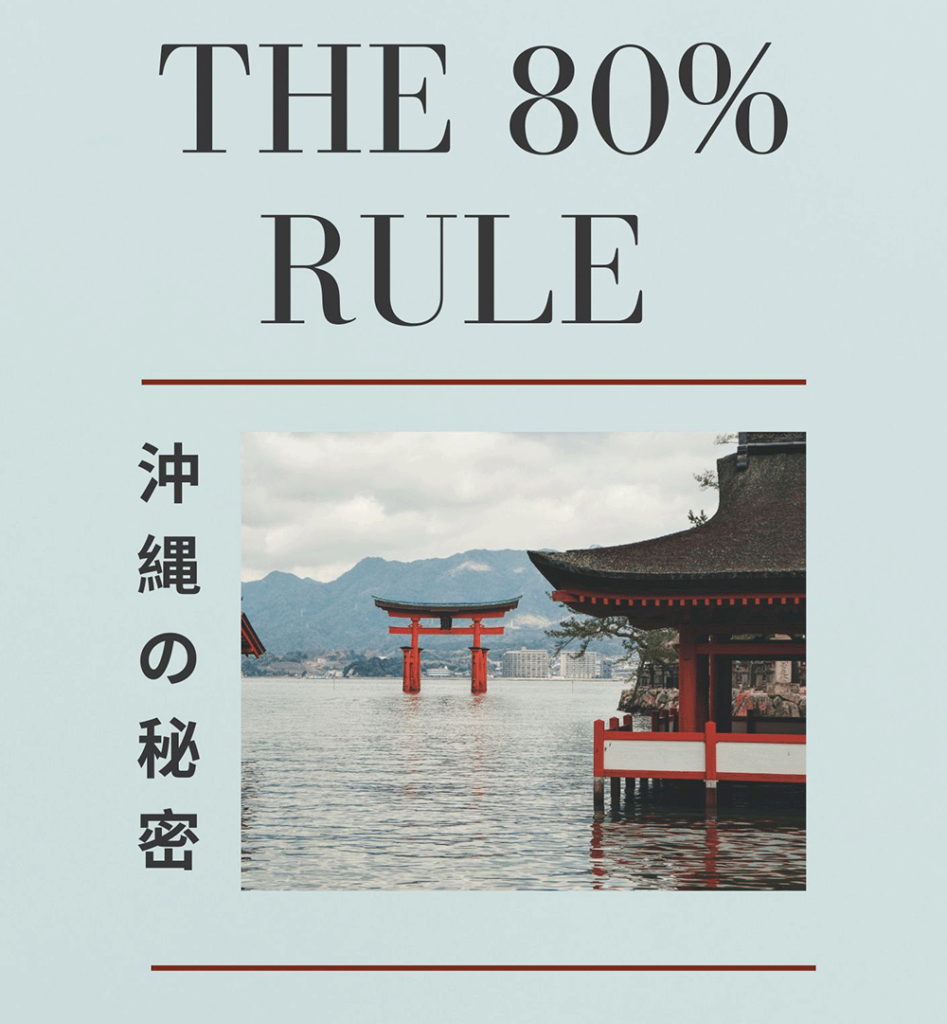
📖 The 80% Rule: Transform Your Health with the Okinawan Secret
What if the key to lasting health wasn’t more—but less?
This book uncovers the ancient Okinawan principle of Hara Hachi Bu and shows how eating until 80% full can transform your body, mindset, and energy—without dieting.
Blending science, culture, and personal stories, this is more than a guide—it’s a return to balance.

